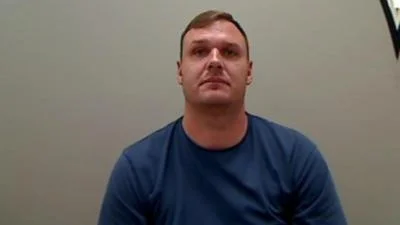With Illinois' state pension liability 17 percent more than it was last year, the vice president of a Chicago-based think tank recently said that 401(k)-style plans for public employees would go a long way toward easing the pension crisis.
"Tomorrow, we should have all new employees on 401(k)-style plans," Ted Dabrowski, vice president of policy at the Illinois Policy Institute, said during the Nov. 20 edition of "Illinois Rising." "The same ones that the private sector is in, and the some ones that university professors in Illinois have. They're the one group that's kind of been selected to have that kind of plan, since 1998, and they're doing just fine. So we need 401(k)s for new employees.
"And then for existing employees, those who don't like the game, those 32-year-old teachers who say, 'I don't want a pension, I don't believe in this thing,' give them an option to have a 401(k). Those two things right there can have a dramatic impact on 1) what happens going forward on pensions and 2) it'll send a signal to the rest of the nation that we're finally moving toward fixing our problems."
"Illinois Rising" is a presentation of the Illinois Policy Institute that recently released a new report on the state's at-times-forgotten-but-still-worsening pension crisis. Illinois’ pension debt increased to $130 billion in 2016, up from $111 billion in 2015, according to an Illinois Policy Institute report, citing the Commission on Government Forecasting and Accountability.
"It's just more bad news, $130 billion in debt, which means nothing to most people, just another big number with lots of zeroes after it," Dabrowski said during his "Illinois Rising" appearance. "But to make it more simple, we've seen that the debt that taxpayers are expected to bail out on pensions rise from just $7,000 10 to 15 years ago to $27,000 per household. Basically, the pension systems are so bad that the government is going to come, at some point, and raise taxes and ask taxpayers to bail it out. Those who don't make much money won't have to pay more, but people who do have an income could expect to pay $25,000 to $100,000 over the next few years to bail the system out."
The state's public pension problems, the worst in the nation, according to Bloomberg News, are not new. By fiscal 2014, Illinois' pension shortfall was more than $100 billion, and partisan bickering in Springfield yielded no improvement.
And yet it is state politicians who are expected to do something about the Illinoisfr debt and pension crisis. Last spring, former Illinois state Rep. Ron Sandack (R-Downers Grove) called for the state to declare bankruptcy. That was a few months before Sandack resigned from the state House over what he said were cyber -security issues, but calls for the state to declare bankruptcy continue.
State lawmakers also haven't been getting much help from the Illinois Supreme Court. In May 2015, Illinois' highest court unanimously ruled unconstitutional a state pension law, signed in 2013 by then-Gov. Pat Quinn, to scale back government worker benefits. This past March, the high court unanimously struck down state legislators' attempts to rewrite some public employee pension funding rules.
While not a complete solution to the state's pension crisis, other retirement plans, such as 401(k) plans, tend to out-perform the pension plans, Dabrowski said, noting that the stock market has done well since it tanked at the beginning of the Great Recession.
"If you just had your money in some basic account that follows the indexes, you're doing extremely well," Dabrowski said. "During that same period, the pension funds, which are for our police and our firefighters and our teachers and our workers, those pension funds are collapsing. They're getting worse. The government and politicians have proved they can't manage money, regardless of whether the stock markets are doing well or not."






 Alerts Sign-up
Alerts Sign-up